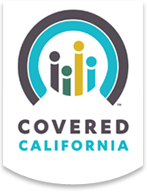FAQs - Business Insurance
Following are a series of frequently asked questions (FAQs) and answers about business insurance in general.
What are adequate liability limits for my business?
In Commercial Insurance, are there policies that provide or combine the various kinds of coverages like a Homeowners policy does with personal insurance?
What is Workers' Compensation Insurance?
I've read that employees are suing their own companies for discrimination, wrongful termination, and violations of the Disability Act, etc. I try to be careful, but what if one of my supervisors commits the violation or my file is not properly documented? What can I do?
Q: What are adequate liability limits for my business?
A. This question has received considerable attention over the years by insurance professionals and legal advisors without resulting in definite answers. The question is somewhat akin to posing the query "How high is up?" Nevertheless, there are some perspectives which may be helpful in determining the amount of liability insurance limits to purchase. These might include:
- Attempt to ascertain the largest judgment rendered against your type of business within the judicial area in which you are located or in which you sell your product or service. (Even then, you may not be willing or able to afford the cost of purchasing insurance to provide sufficient liability limits to cover any such awards.)
- Examine your balance sheet (assets vs. liabilities) to determine what you have to lose and thus need to protect. Remember, however, that liability losses resulting in judgments or out-of-court settlements generally have no respect for wealth or lack of it.
- Similar to setting liability limits based on your balance sheet, use your income statement for the same purpose. However, the same concern regarding losses vs. wealth still applies.
- Consider liability limits you can afford or with which you feel comfortable. Unfortunately, this practical approach does not provide "a quiet night's sleep" for most business owners, especially if you realize that the next verdict could easily exceed your limits several times over.
- Review all business contracts you have signed, including premises and/or equipment leases, etc. for their specific liability limit requirements -- most contracts will have them! This may determine at least the minimum liability limits you should carry just to comply with the contract provisions.
- Consider what level of liability protection is being carried by other area businesses and competitors similar to yours. While we cannot disclose confidential client information, our agency is a good source of general information of this nature because of the number and cross-section of businesses we insure.
All of this causes one to ask what a business owner can do to determine proper liability limits if the techniques previously listed are filled with uncertainty. There is no one acceptable and simple method. It requires an examination of the legal climate, or perhaps various legal climates, the type of exposures presented, and all of the previously suggested parameters.
Q: In Commercial Insurance, are there policies that provide or combine the various kinds of coverages like a Homeowners policy does with personal insurance?
A. Yes, there are various "package" policies available. Programs such as the Business Owners Package (BOP), Special Multi-Peril (SMP) and insurance company designed packages are constantly being marketed. Many insurers design packages to meet specialized needs, such as auto garages, auto dealers, jewelers, furriers, barbers and beauty salons, and apartment buildings.
Q: What is Workers' Compensation Insurance?
A. In general, the current Workers' Compensation system represents a compromise between employers and employees regarding employment-related injuries or illnesses. Basically, employees relinquish their right to sue employers if they suffer some job-related injury or illness. In return, employers agree to provide state-mandated benefits if such injuries or illnesses occur. To ensure employers will have the money to pay these mandated benefits, most states require that employers demonstrate that they have the financial ability to pay any claims that may arise. Typically, this financial ability is demonstrated through the purchase of Workers' Compensation insurance.
Q: I've read that employees are suing their own companies for discrimination, wrongful termination, and violations of the Disability Act, etc. I try to be careful, but what if one of my supervisors commits the violation or my file is not properly documented? What can I do?
A. Your Business Liability coverage and your workers' compensation insurance do not pay these types of claims, but you can buy insurance coverage called Employment Practices Liability Insurance or EPLI. This insurance protects your business from employees' allegations against you and your business. Especially important is the legal defense aspect of the policy, because the legal bills can often be higher than the amount of the claim itself.


